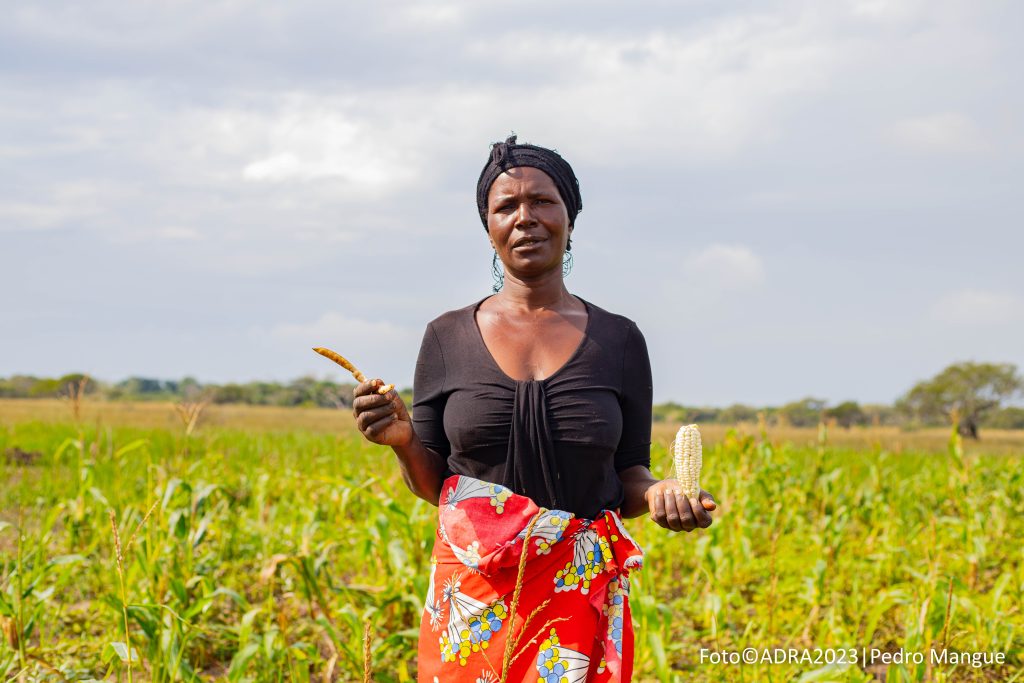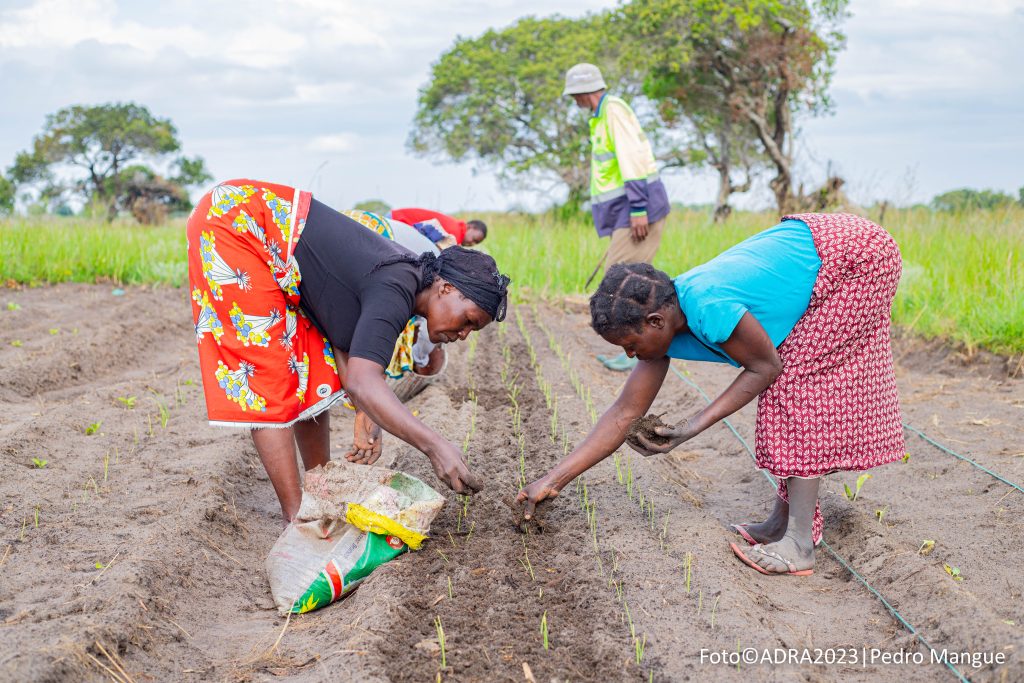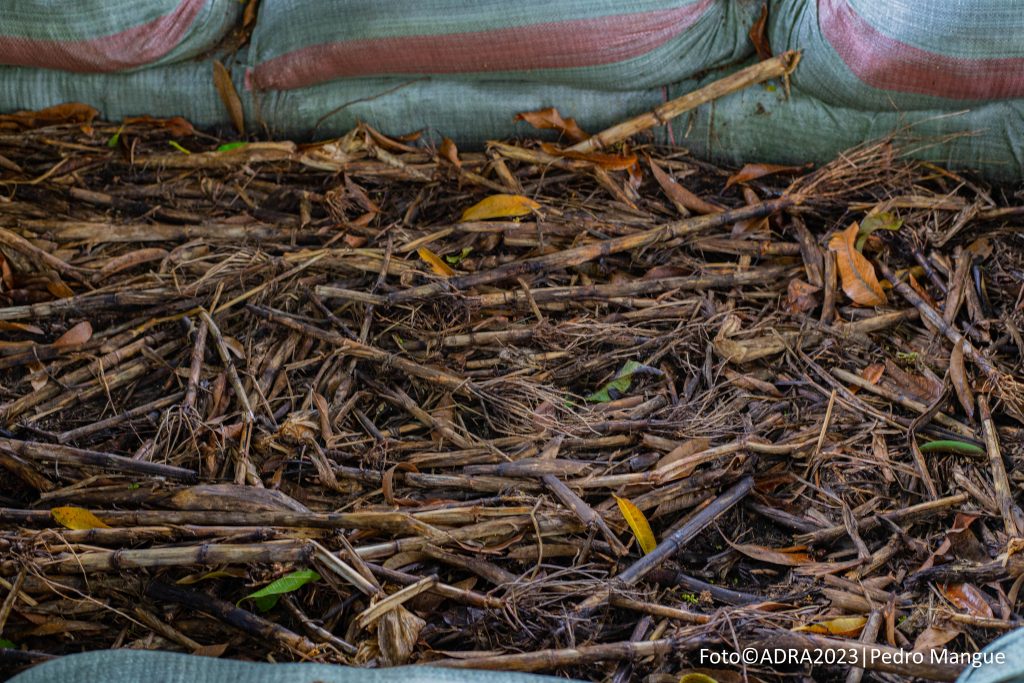BAF-funded Kuvikela project promotes vermicomposting activities in Matutuíne to fertilize the soil and improve production
This is your chance to take that life-changing adventure, find your purpose in service, create life-long friendships, and see faith in a new, transformative way. ADRA Connections is ADRA's short-term volunteer program that takes you into the field to put compassion into action and make an impact for communities in need. No experience necessary!
"...these soils are very sandy, so few crops grow easily. It's a breakthrough to have a technique that promises to improve the soil..." Cristina Madzile

Cristina Madzile, an associate producer at the farmer's machamaba field school in the community of Zitundo-sede, Matutuíne district, is one of the 814 participants in the agricultural component of the project "Adaptation to climate change based on ecosystems in the Maputo Environmental Protection Area (MEPA): Conserving and Building Resilience - KUVIKELA", and is very interested in the conservation technologies that her group has been learning.
Due to the main problem of agricultural production in the coastal communities where the initiative takes place, which is the predominance of extremely sandy and nutrient-poor soils, ADRA has established a partnership with the Center for Research and Technology Transfer for Community Development (CITT) to provide training in vermicomposting, a process that consists of using earthworms to produce organic compost incorporated into the soil.

in the soil to improve soil fertility.
"In this community, we normally use chicken and cattle manure for vegetable production because these soils are very poor. We don't yet know what the result will be of this vermicompost technique we're applying at the school, but the technique itself is very easy to apply. With the use of vermicompost, we hope to make progress for the next agricultural season, as was the case with the other techniques we started in the rainfed fields..." Says Cristina - one of the trained farmers.
At this stage, the ADRA Mozambique team, which is responsible for the conservation agriculture component of the consortium implementing the initiative, is cultivating earthworms in order to expand the technique to the other 22 communities in the Matutuíne district where the initiative is based, while at the same time assisting producers in this community to fertilize vegetable fields with vermicompost.
The process of decomposition of crop stubble by earthworms (vermicomposting) is relatively faster and makes nutrients available to plants more efficiently compared to
to compost made only with organic matter, increasing the likelihood of producing large quantities of this biological fertilizer.
Christina Madzile also says that the agricultural fields in her community are dominated by hard-rooted and difficult-to-control grasses (Cyperaceae family) that require frequent weeding and compromise the plants' root development.
"Nn the rainy season, the technician taught us to cover the soil with dry grass and we saw that we didn't need to weed much because there was little grass and we could keep the crops growing. That's why we're doing it here in vegetable production".
For the dry season, the initiative is supporting farmers with crops such as: tomatoes, cabbage, eggplants, onions, cabbage, peppers, carrots, lettuce and beet.

to contribute to the food security of families and make farming profitable, thus helping to reduce pressure on marine ecosystems.
ADRA (Mozambique and Germany) is implementing this initiative "Ecosystem-based Adaptation to Climate Change in the Maputo Environmental Protection Area: Conserving and Building Resilience" in 20 communities in the Matutuine district (administrative posts of Zitundo, Machangulo and Bela vista) and in the 3 communities of the KaNyaka Municipal district, financed by the Blue Action Fund (BAF) and in partnership with the Peace Parks Foundation-PPF (lead organization of the consortium), AMA, Livaningo and CTV. It is a 5-year initiative that began in June 2022 and has a budget of €7,854,031 divided between the implementing partners.
About ADRA Mozambique:
The Adventist Development and Relief Agency (ADRA) is a global humanitarian organization with a mission to work with people in poverty and suffering to create just and positive change. ADRA Mozambique belongs to ADRA's worldwide network of 120 national support and implementation offices. ADRA Mozambique has four main sectors of intervention: (i) Sustainable Livelihoods; (ii) Health, Nutrition and WASH; (iii) Education, and (iv) Emergency Management. The National Office was established in 1987 in response to the humanitarian crises resulting from the prolonged civil war and recurrent drought. In 1993, after the end of the war, ADRA Mozambique adjusted its strategic focus from humanitarian aid to development, corresponding to Mozambique's transitional needs.
This is your chance to take that life-changing adventure, find your purpose in service, create life-long friendships, and see faith in a new, transformative way. ADRA Connections is ADRA's short-term volunteer program that takes you into the field to put compassion into action and make an impact for communities in need. No experience necessary!
